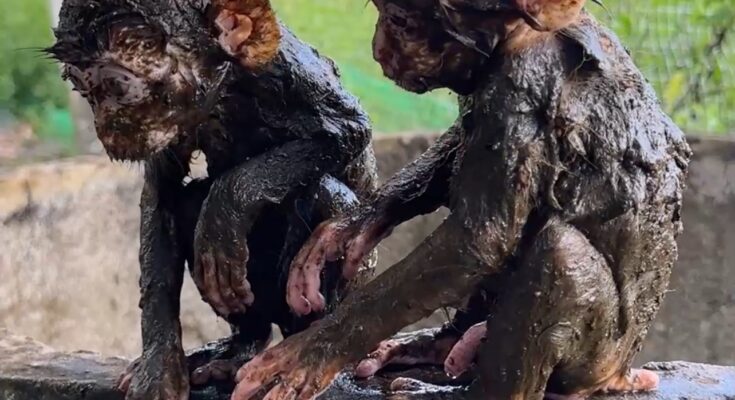In the dense forests where monkeys thrive, the bond between a mother and her baby is everything. A baby monkey without a mother faces a heartbreaking and often short-lived life filled with fear, loneliness, and struggle.
From birth, a monkey depends entirely on its mother—not just for milk, but for warmth, safety, and learning. A mother teaches her baby how to climb, forage, and avoid danger. Without her, a baby monkey is left vulnerable to predators, starvation, and even rejection from its own troop. Other monkeys may bully or ignore the orphaned baby, as it lacks the protection and status that a mother provides.
The emotional toll is just as severe. Monkeys are deeply social animals. A baby monkey without a mother often displays signs of stress: constant crying, trembling, or clinging to inanimate objects for comfort. In captivity or rescue centers, such monkeys may even refuse to eat, leading to rapid health decline. The trauma can leave lifelong scars, affecting the monkey’s ability to socialize or reproduce in adulthood.
Sadly, human activities contribute to this suffering. Deforestation, poaching, and the illegal pet trade frequently separate infants from their mothers. Tourists may unknowingly support this cruelty by paying for selfies with baby monkeys or watching them perform in street shows.
The life of a motherless baby monkey is not just a sad story—it’s a call for compassion. Wildlife conservation, ethical tourism, and stricter laws against animal trafficking are essential to protect these fragile lives. Every baby monkey deserves the love, care, and guidance of its mother. Without it, their world is a lonely and dangerous place.



